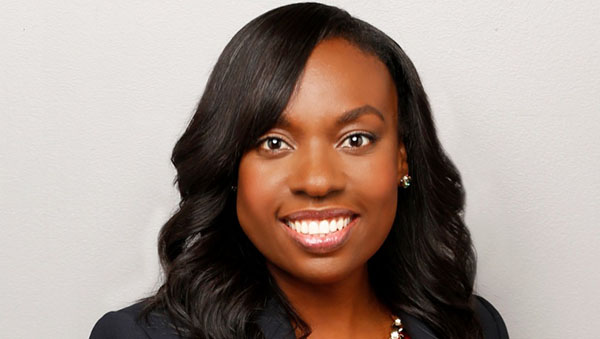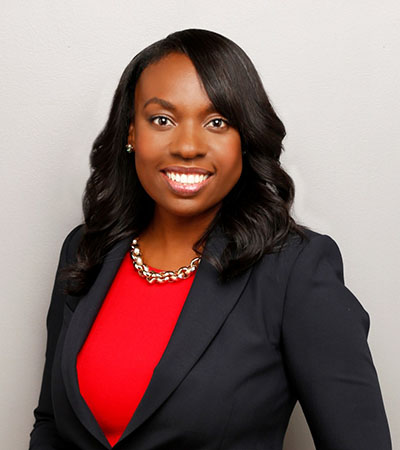By Neil Armstrong
PRIDE Contributing Writer
TORONTO, Ontario September 7, 2016 — As students across the province started the new school year yesterday, Ontario’s Minister of Education, Mitzie Hunter, encouraged parents to expect the best of their children and to know that they can achieve academic success.
“They can achieve, they can succeed; they need your support. Continue to believe in them,” she said.
Minister Hunter said everyone at the ministry and in the education system is aligned around student success, student achievement, and that parents’ involvement and engagement in their child’s education at the school level and at the classroom level with their teachers is really important.
“It’s actually one of the factors in the success of a child in school,” she noted.
“Education is really the key to success for a child and in Ontario we have one of the best education systems in the world. Our focus is moving it from a great system to an excellent system where all students have the opportunity to achieve their full potential and that’s my focus as minister of education.”
The minister also said one of the priorities of her ministry is to look at closing the achievement gap of students.
“We’re proud of the fact that 85.5 percent of students are graduating high school within five years in Ontario but when we look at certain groups, including black students, they’re not achieving that same level.”
Sixty-nine percent of black students graduate and the dropout rate – 20 percent — is double that of white students. For black boys, the dropout rate is twice that amount.
“When we talk about closing that achievement gap it’s making sure that we look at things in a way that provides the necessary support so that all students are achieving their full potential,” she said.
The education minister said her team at the ministry is working with the school boards to make sure that all students in the system get the support that they need.
She said the ministry need to do so through an equity and inclusive education lens ensuring that the education system gives all students the opportunity to succeed, regardless of their background or demographic characteristics.
“It really aims to identify and address those barriers that really limit the students potential and provide the supports that they need. So, there is much more that we need to do on this, much more to come on this.”
Asked if the ministry has information about how Caribbean students are faring in the system, Hunter said the good news is that the Toronto District School Board (TDSB) does a census of all students so they have data that looks at students by those categories.
She said the TDSB is the only board that has this type of comprehensive data and the ministry has brought Donna Quan, a former director of education of the TDSB, into the team there to make sure that they look at the data and utilize it to develop policies and initiatives.
Minister Hunter said this would help other boards to do the same as well.
The Ministry of Education is partnering with York University to do this work through Quan’s leadership since she has the experience of doing it at TDSB, said Hunter.
At an event in August, the minister said the rates for first-generation students are bad and for third-generation students it is worse.
Fifty-eight per cent of third generation high school students who are black do not apply for post-secondary education.
“I do think that by looking at the data from that perspective it really is an indicator, in terms of the types of supports that are needed for students for their achievement.”
Hunter said in its May 2016 budget, the government announced programs that look at making postsecondary education free, in terms of tuition for students who are from a lower income.
“The reason we did that particular policy is because we noticed that students on the lower income side of the scale were actually not applying, whereas on the higher income scale most of the students were applying. I think it was 4 out of 5 were applying on higher income and 1 out of 5 were applying on the lower income. That’s an inequity and we needed to correct that.”
The Ontario Student Grant makes tuition for four years at college or university free for families with income of $55,000 and less.
Hunter said the ministry of education is motivated to support those underrepresented groups who do not go to postsecondary and is working on putting a plan in place.
This includes informing families that “income is no longer a barrier, that they will be able to access college and university at no cost and what the students need to do is to work on their qualifications, get the supports that they need so that they can go on to further education.”
Minister Hunter said there are a number of tools and strategies that can be deployed to help students and their parents, including individual education plans.
“It’s also looking at, when I talk about underrepresented groups, youth in care. They’re not faring as well as the average also. Can we use some of those tools that we know that do work that inspire students to achieve within the education system, and also ensuring that regardless of where they live that they are accessing those types of supports?
Aside from closing the achievement gap and making sure that all students achieve, Hunter — the first black person in that position – is also looking at things from a wellbeing perspective.
This means seeing the whole student, a balance of their physical, mental health and ability to do their academic work.
She said math is also a key indicator in terms of the choices that students have in their future success.
The ministry is also looking at the ability of students to connect with the world beyond school.
It plans to re-launch its math strategy making sure that it sees student success unmatched.
“We’ve just received the Premier’s Highly Skilled Workforce Council Report this summer that looks at the value of experiential learning and those types of programs like co-op programs, apprenticeship programs, dual credit programs, specialist high skills major programs. Those were types of tools that help to engage students in their learning because it connects with varying meaningful career opportunities beyond school and making sure that we keep kids engaged as much as possible in their learning.”
Hunter said the ministry of education is always updating and revising the curriculum and wants to ensure that it applies its equity and inclusive lens.
She said if one looks at the example with Indigenous learners, through the Truth and Reconciliation Commission, this is something that the ministry is working on quite actively, to review the curriculum from that lens.
Minister Hunter will be the keynote speaker at the Jamaican Canadian Association’s 14th annual scholarship awards presentation on September 17 at the Jamaican Canadian Centre in Toronto.
 Pride News Canada's Leader In African Canadian & Caribbean News, Views & Lifestyle
Pride News Canada's Leader In African Canadian & Caribbean News, Views & Lifestyle






